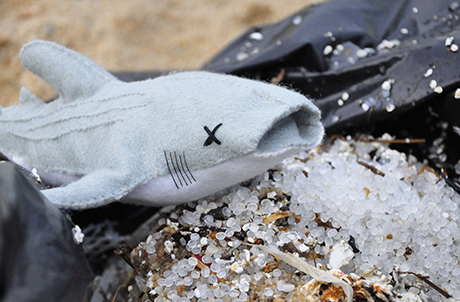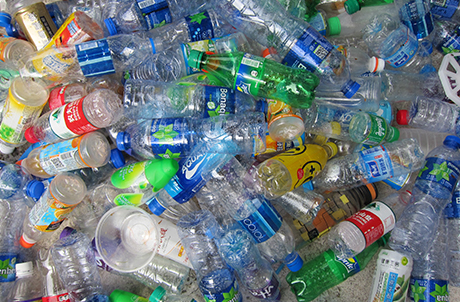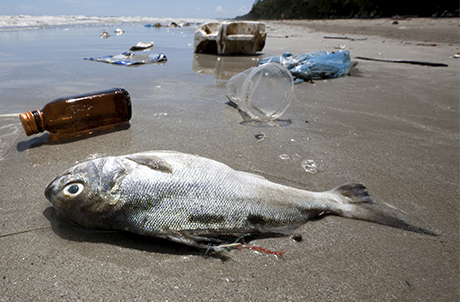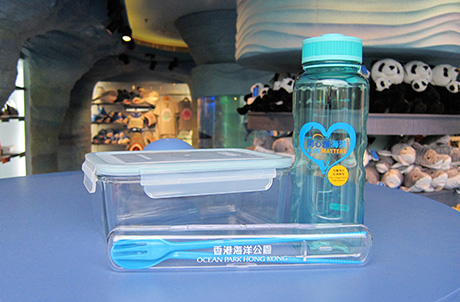Ocean Park Hong Kong, 180 Wong Chuk Hang Road, Aberdeen, Hong Kong Tel: (852) 3923 2323 Fax: (852) 2873 5584
Copyright © 2025 Ocean Park Hong Kong. All rights reserved.

The oceans are home to numerous marine lives. However, humans have been sending invaders to haunt the underwater world. Guess how much rubbish enters the oceans every year? Millions of tonnes. It comes from littering, illegal dumping, recreational activities and fisheries. It is also carried in the wind and water that sweeps and washes the land. Marine debris is not only a problem caused by inappropriate disposal, but also a consequence of our overwhelming consumption. In Hong Kong alone, we generate around 10,880 tonnes of municipal solid waste every day. That is equivalent to 725 double-decker buses!

Amongst the tremendous amount of marine debris, 60 to 80% is plastic. Plastics are everywhere in our daily life. Shaped into clothing, containers, appliances and furniture, they are man-made materials which are supposed to make human life easier. Yet, it is clear we went a step too far when we began our throwaway culture. Every minute, the world consumes over 1 million plastic bags and 28 million plastic bottles. There are also disposable cutlery, foam boxes and many other things which people are eager to use but reluctant to keep. Though designed to serve for mere minutes, plastics are made to last for centuries. Their rate of degradation is so slow that it may take up to 1,000 years for a plastic item to decompose! They cannot be absorbed by nature even when broken down into microscopic fragments.

When plastics enter the sea, they become a persistent nightmare. Floating along the water currents, they accumulate in ocean gyres and form swirls of rubbish, such as the Great Pacific Garbage Patch found in 1997. Marine debris has harmed at least 267 species, including fish, dolphins, whales, sea lions, seals, sea turtles and seabirds. For example, over 1,000 Antarctic fur seals have been found entangled in one region of the southern Atlantic. A stranded sperm whale had over 73 kg of debris in its stomach. On a Pacific island, some albatrosses were unintentionally feeding plastic fragments to their chicks. Imagine if it was your parents feeding bottle caps to you! If entangled, the victim may be wounded, drowned or strangled. Their digestive system may be blocked or filled by ingested debris so that the animal starves. Plastic waste may also leach toxins and collect other pollutants in the water. By accumulating in the food chain, these hazardous chemicals threaten the whole marine ecosystem, and also humans.

The oceans cannot sustain our marine debris. The Earth cannot tolerate our plastic waste. Act now! Keep the oceans clean and healthy!